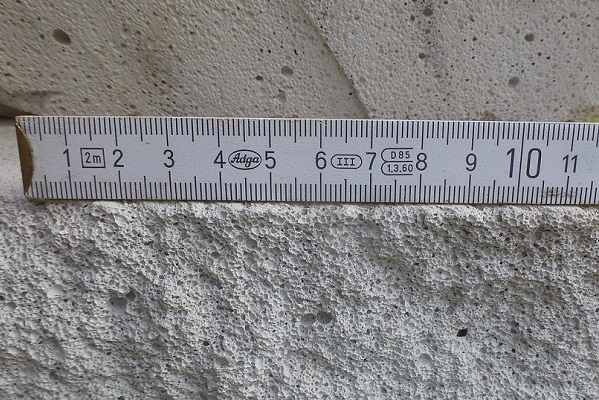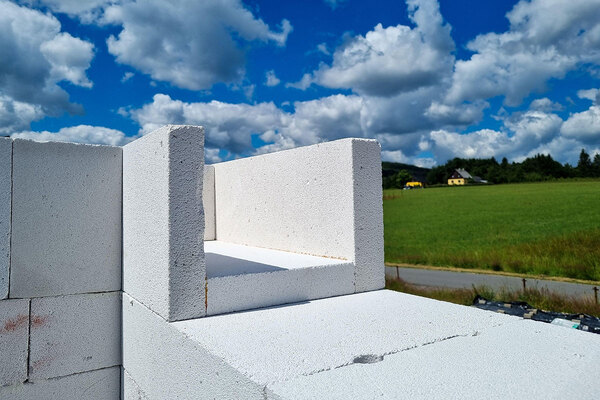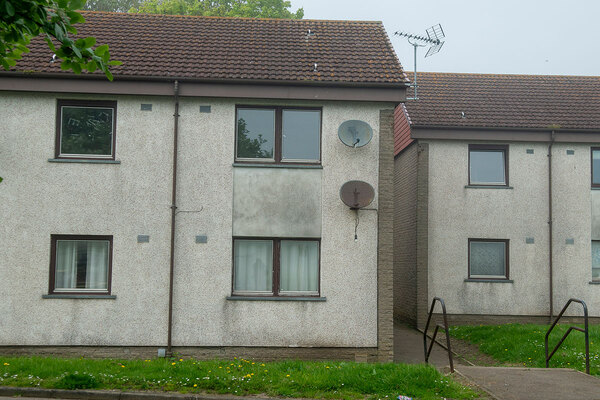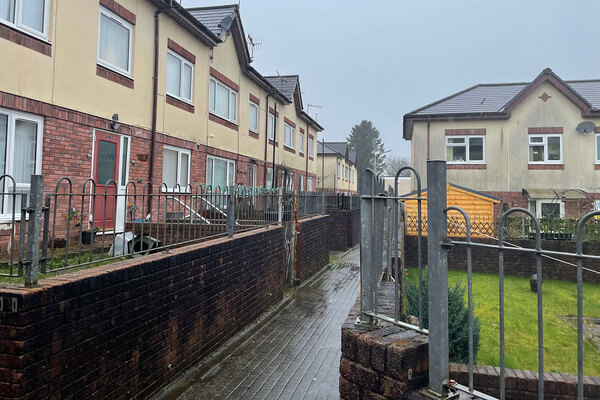You are viewing 1 of your 1 free articles
Welsh landlord begins work to fix 60 RAAC-affected homes
A Welsh housing association has started work to fix safety issues at 60 homes built with reinforced autoclaved aerated concrete (RAAC).

Trivallis is carrying out the work on homes on the Gower Estate in Hirwaun and has completed the first property.
RAAC is a lightweight form of concrete that is less durable and has a lifespan of around 30 years. If water gets into the material, it is susceptible to structural collapse.
To fix the problem, Trivallis will install a safety deck across the ceilings of all upper-floor rooms in each home.
“This deck will ensure the stability and security of the RAAC panels, keeping them firmly in place,” the landlord said.
An extra layer of plywood will be added to the safety deck to form a protective barrier and catch small fragments that might fall from the RAAC panels.
The remaining homes will be completed in a phased programme expected to take place from October 2024 until April 2027, Trivallis said.
The work is expected to take four weeks per home and tenants will be temporarily rehoused nearby during that time.
Trivallis is also in contact with 17 private homeowners and landlords with homes at risk of RAAC-related issues via the local authority. It has offered them the option of using its contractor, CS Phillips, to carry out safety work.
“This is a long-term solution, and no further work will be required to maintain the safety of the properties,” the landlord said.
In March this year, the landlord advised 40 households on the estate to leave their homes over the risk posed by RAAC, offering temporary accommodation to those who did.
Subsequent structural surveys revealed that only a few homes were at urgent risk, Trivallis said.
Since then, surveyors have carried out weekly inspections to make sure the RAAC panels have not deteriorated.
Keiron Montague, executive director for communities at Trivallis, said: “We understand how stressful the news about RAAC was, and how difficult it has been for people during the months we’ve been evaluating all the options.
“We’ve spent the last few months working with experts, including structural engineers, consultants and contractors, to find the best solution. After careful consideration, we have chosen a plan that we believe will solve the problem, while listening to the tenants’ concerns about moving from the area.”
In August, Aberdeen City councillors decided to demolish and rebuild around 500 homes built with RAAC panels at a cost of at least £150m.
Sign up for our Wales newsletter
New to Inside Housing? Click here to register and receive our Wales round-up straight to your inbox
Already have an account? Click here to manage your newsletters











